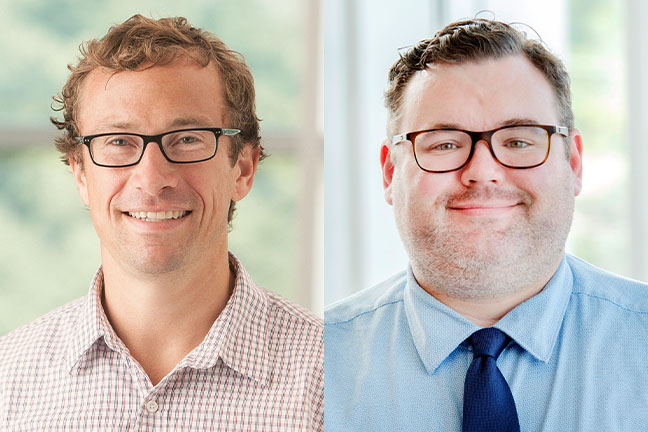This story appeared in the Internal Medicine Department’s 2022 Biennial Report, which was published earlier this year.
A relatively new subspecialty of medicine — interventional pulmonology — is helping physicians at UNMC care for and treat patients with complex diseases of the lungs and airway.
The Interventional Pulmonology Program helps to address:
- How to effectively biopsy patients with suspected lung nodules and accurately diagnose them;
- How to evaluate patients with known lung cancer to determine how far along the cancer has progressed; and
- How to help alleviate symptoms of pleural effusion in patients who have obstructed airways.
The program is overseen by associate professor Brian Boer, MD, PhD, and assistant professor Keenan Taylor, MD, of the UNMC Division of Pulmonary, Critical Care and Sleep Medicine who are both interventional pulmonologists.
Dr. Boer started the program five years ago and was joined by Dr. Taylor last year. Together they help assess patients who have suspect lung nodules incidentally found but who do not present with other symptoms.
“We help the patient and their clinician determine if they need a lung biopsy and are able to do so as minimally invasive as possible using robotic bronchoscopy,” Dr. Taylor said.
Lung cancer, when detected at an early stage, is much more treatable, he said, so it is important to educate patients about the risks, and if they are over the age of 50 and smoke, they are eligible for screening, which is highly recommended.
Dr. Taylor said that along with evaluating lung cancer, they also help alleviate symptoms in patients who have pleural effusions by performing a bronchoscopy lung volume reduction procedure.
“The IPP program is also beneficial to our current pulmonary fellows who rotate with us and are able to observe and learn more about these issues and treatments,” he said.
